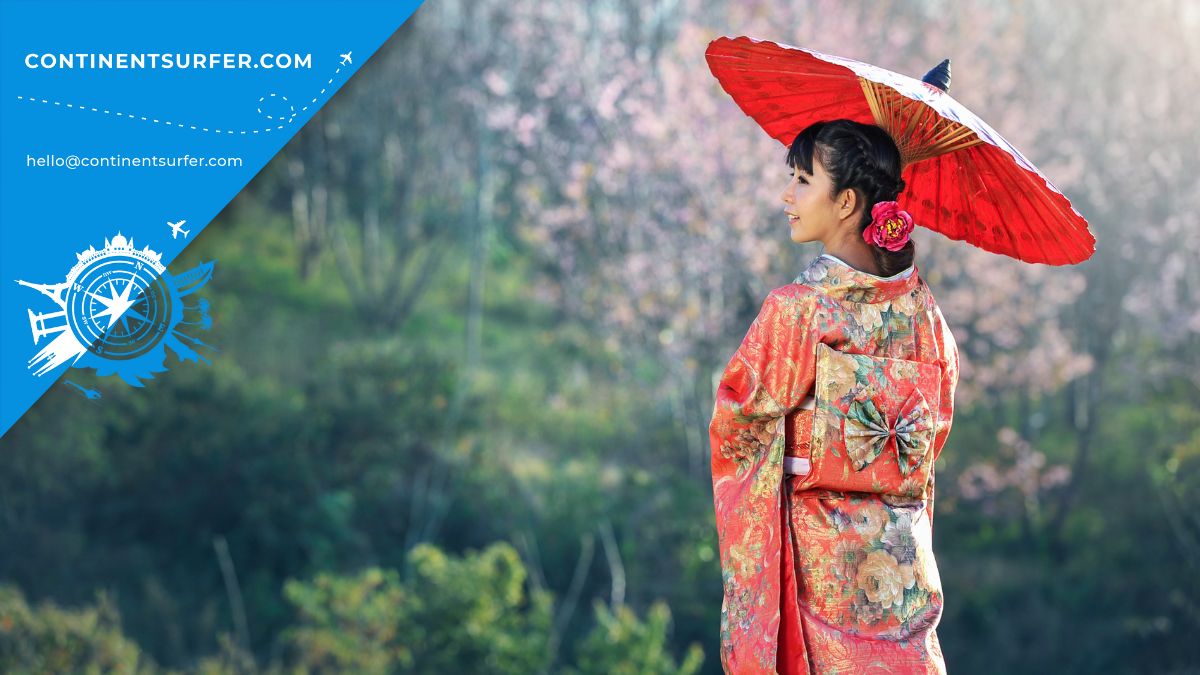Magical Japan
This mysterious island nation, steeped in ancient traditions and state-of-the-art technology, is still practically unknown to the outside world. The real Japan is hard to get to know, even during a long stay. Japanese society, closed and still respectful of ancient laws, is not renowned for its directness or its receptiveness. Behind the constant smiles and bows, there are repressed feelings and tensions. Their diligence and loyalty are unquestionable, their work ethic is globally recognised, but it is by no means healthy. The most common cause of death is suicide.
written by: Kosza
For them, the slightest sense of shame is enough to take themselves out of the cycle of life. The unwritten traditional laws they have to follow are religious teachings that are more worth than their lives. For them, thanks to Buddhist and Shinto teachings, passing away is not a sad event but the beginning of something new. Interestingly for us, they “mourn” in white. Life is precious only as long as their work has real value, as long as their honour is pure and unblemished. In Japan, even a break-up can be suicidal, not necessarily out of rejection, but more out of shame at the feeling of being superfluous.
Work-life balance
Most people spend their entire lives in one workplace, and sometimes that has to be taken literally. It’s a growing problem that the Japanese have come to think of the workplace as almost their home, they don’t go home, the little sleep they do get is at work. As a consequence, their human relationships have been completely marginalised to the point where hardly any children are born. The government now rewards those who take their holidays or work only their working hours and do not work overtime.

The process
But it is this mentality that has led to the incredible progress they have made since the end of the 19th century. In the mid-1800s, they were still living in an almost feudal medieval way. They were hundreds of years behind the industrial and economic superpowers of the West, but it took them barely 100 years to catch up. A thirst for knowledge, commitment, loyalty and humility, brought with them by ancient traditions, resulted in this outstanding achievement. To this day, the Samurai tradition of ‘service’ lives on in them. This great devotion has/had therefore its downsides. Just think of the kamikazes of World War II, who surprised and horrified the world with their suicidal actions. Or the horrible habit of hara-kiri, in which it is not enough to disembowel oneself, but one’s best friend has to finish the job when he has no strength left. In many circles, the custom is still practised today. The Japanese strive for the best in everything. High-performance sports cars, colossal ships and the most feared gang of criminals, the yakuza. For a long time, this group dominated Japan’s economic and political circles, but they are now becoming obsolete. Interestingly, it is no longer fashionable for the Japanese to be criminals.

Duality
It is this duality of the hyper-modern and the ancient world that makes this wonderful island mysterious and incomprehensible to us.
It’s a realm of giant Buddha statues, Shinto shrines, pagan temples, castle mansions reminiscent of fairy-tale towers, curiously arched bridges, richly gilded temples and Japanese gardens dripping with enchanting petals, mixed with a world of skyscrapers and high-tech. Japan is home to samurai, geishas and mysterious and feared ninjas. At the foot of the snow-capped sacred mountain of Fujiyama, mysterious temples and pagodas hide.
Industrial giants, cutting-edge technology, the world’s fastest train, modern architecture that transforms millennia-old forms into modern ones, and overcrowded metropolises make the Japanese islands so irresistible. We are talking about a closed world that we can only get a glimpse of through Japanese films and literary works, which are now part of world literature and film history. The famous Godzilla is also a product of Japanese literature, the ancient monster sworn to protect the people. Their pornographic works are the most ambitious and the sickest. Their horror films are also dominated by total sophistication, but they present everything so vividly that most of them are banned. I think it is precisely because of their excessive repression of emotion and politeness that they are at their most genuine.

Versatility
The island nation of the Far East always has something to surprise and amaze visitors, or even the world. Just think of the infamous attack on Pearl Harbour, when the world’s greatest economic and military power was attacked by surprise, albeit somewhat under duress. For all the wonderful landscapes, the hyper-modern technology and the respect for ancient culture, there is one thing that is sorely lacking, and that is the cornerstone of modern economy and industry. Japan is very poor in raw materials and land, and therefore relies on imports for all these things, which makes it very vulnerable. It is no coincidence that throughout its history it has launched wars of conquest mainly because of this constraint.

Cuisine
For us, Japanese cuisine can also be quite interesting, one might even say disgusting. A lot of raw seafood or even non-seafood meat is not very attractive to us, but most of us are only comfortable with that until we taste it. Their staple food is rice, which they can prepare in a variety of ways. Sushi, ramen, soba, tempura, to name just two of the specialities that traditional Japanese chefs have to try in the island nation. And fugut is one of the biggest specialities in the world. This poisonous fish, can be a sublime experience, but if not prepared properly, it can be the ultimate experience.
It’s not a cheap affair to visit the Japanese islands, because not only is the airfare expensive, but the daily life of the stay itself is expensive as hell. Interestingly, if you want to eat good fried crumbed meat, you have to go to Japan. They are so fond of this simple Hungarian dish that they have perfected the technique of making it and run their own stir-fried meat restaurants, which are world-renowned.

I would like to end with a useful Japanese saying: ‘Hito wo norowaba ana futatsu‘ (He who curses others should dig two graves).
No responsibility is taken for what is said in this article. This article does not necessarily reflect our views!
What if you could explore some of the world’s most lavish places for a fraction of the public price?
Imagine saving up to 60% on your hotel and apartment bookings worldwide!
Over 1 million travellers, on over 30,000 DreamTrips in over 70 countries, already have chosen it!
Did you know?
When eating in Japan, slurping your noodles is not rude. Quite the opposite: slurping loudly in Japan is considered evidence of enjoying your meal. It is also said to add flavour to the noodles.

Like what we do?
If so, please support us, every little counts and much appreciated!
You will help us to come up with useful information regularly, so please support us every once in a while or even on a monthly basis! Thank you!
Source(s):
Original article: Varázslatos Japán Translated by: BOGI – CONTINENT SURFER
Join the Continent Surfer community! 🌍
Subscribe to our newsletter and be the first to receive the latest news, useful tips, and exclusive offers! 📩

Like what we do?
If so, please support us, every litte counts and much appreciated!
You will help us to come up with useful information regularly, so please support us every once and a while or even on a monthly basis! Thank you!
Comment

